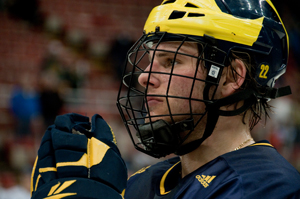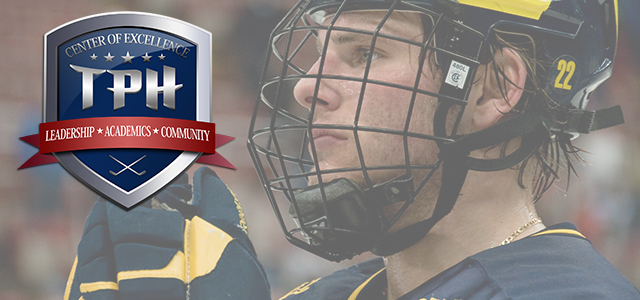Naurato: It’s ‘Silly Season, Part 2’ for youth hockey

By Brandon Naurato –
This is a follow-up to Naurato’s ‘Silly Season’ is here for youth hockey column that was originally posted on Feb. 11, 2015.
The winter season is over and as players and parents travel from rink to rink we hear whispers of stories that have transpired throughout the year. Some tell stories of championship victories, teams that came together at the right time, and how much better their son or daughter developed as a hockey player over the course of the season. Others tell stories of heartbreak, bad coaching, and what this parent said or did that they don’t agree with. I know what you are all thinking and, unfortunately, this time of the year is just as crazy as the previous months. You thought it was over, but a week after the state tournament, tryouts for the following fall season are already underway and it is just the beginning of ‘Silly Season, Part 2.’
With all that said, you can still dictate the future. I have put together my own little acronym when it comes to choosing a team for next year in regards to exactly what you need to look for in a coach, an organization, and a league. Here is D.O.E.:
Development
Opportunity
Exposure
Before we break down the importance of each of the three topics of discussion above, I want to make it clear that the word “exposure” does not relate to anyone below the midget AAA level. Also, please understand that the advice given below is to help parents and players pick the best fit for their child going forward. With that said, this is a two-way street and the coach has to have a vested interest in your son/daughter, as well.

Development – On-ice skills are generally the most talked-about area of development, but they are not the most important. Each part of development is a small piece of the big puzzle. The number of ice touches per week, stress on skills, structure, and overall hockey IQ are key questions to ask a coach when it comes to putting his nine-month plan down for his team before the season starts. Having a breakdown of exactly what we are going to focus on each day throughout the week shows you that the team you are interested in playing for has a plan going forward.
Life skills and mentorship from the coaching staff is by far the most important part of development that a youth player can receive. Communication and trust on both sides will help players and coaches develop a positive relationship going into the season. This will help build confidence in a player to ask questions and get feedback so that you know exactly where you are in order to get to where you want to be.
Opportunity – Where do you fit in on the team? Once you establish your role and how you can help, you need to identify exactly where you stand in the pecking order when you start on Day 1. Are you the No. 1 defenseman or the sixth defenseman? Are you the starting goalie that is going to play 70 percent of the games or are you in a back-up role willing to earn your ice time each day in practice? It is tough for a coach to tell you exactly where you stand at the beginning of the season and then lay out a plan for the entire year. However, situations change and players develop at different stages of their career. A U16 player may be tabbed as a third line winger and by the end of the season he has been promoted to the top line. This is not uncommon and should motivate the top guys to continue to push themselves as well as the bottom guys to prove their importance to the team.
Each individual is in a different situation, and you need to understand that you dictate your own success through your play on the ice, your attitude and your character. I have never met a coach that won’t put a player in a position to help his team win games if that player deserves that opportunity. It is your job to prove it.
Exposure – Whether you play in the Tier 1 League, the HPHL or high school hockey, there is exposure everywhere. The old cliché that ‘if you are good enough, they will find you’ still rings true now more than ever before. My advice would be to find a coach that has relationships at the next level. You are going to hear the same old song and dance from everyone. “I can get you there! I have relationships with this guy and that guy!” This is all great to hear, but you can do your research in the hockey community to find out exactly who has those relationships. You don’t have to worry about impressing a dozen different junior or college teams when it comes to showcasing your brand as a player. If you find a coach that is well respected in the hockey world, then you only have to impress one person – him. He will be the first phone call from every team that expresses interest in you and what he says – positive or negative – about you as a person and a hockey player will go much further than what you do on the ice.
D.O.E was put together to help players and parents put a list of questions together to make an educated decision on the best path available for their child going into the following season. However, at the end of the day, the player will dictate the success or failure of their hockey career going forward. The player is the one that has to put the work into developing his or her overall athleticism off the ice and their skill set on it. The player is the one that dictates the ice time and opportunity that they receive through practice habits and the impact that they have for their team in games. The player is the one that creates the buzz from coaches and scouts at the next level by what they bring to the table at every tournament and showcase when they evaluate from the stands. It is all on the player, and the people in their life should be there to help open doors throughout the process. Now, if you’re that player, walk through that door with no regrets and all the stories of ‘Silly Season’ will be a distant memory because you have moved on to bigger and better things.

